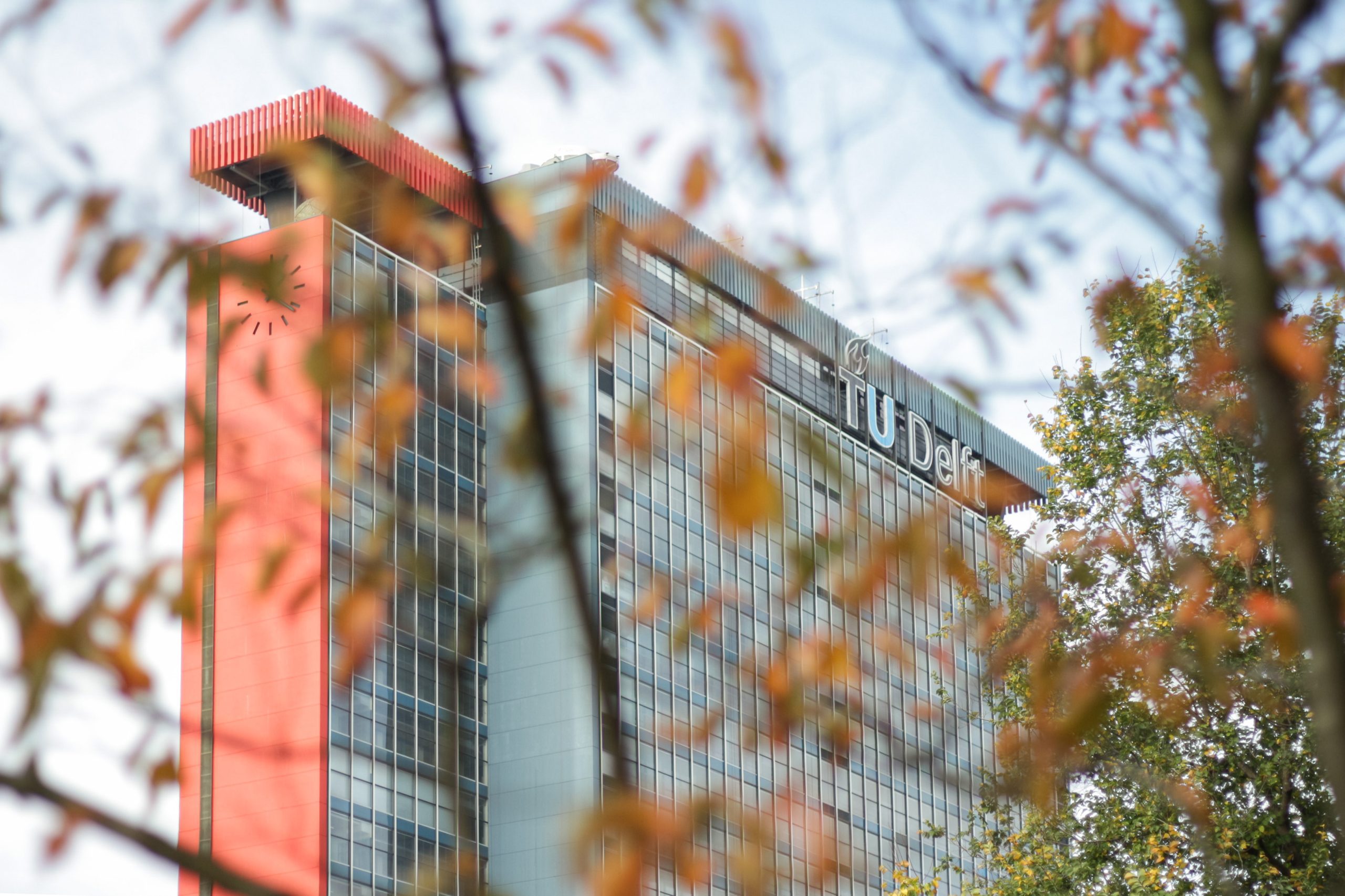TU Delft’s unions want to be part of the discussion on new measures to improve social safety right from the start. This transpired on Monday at a meeting between the unions and the Executive Board in which the contact point on social safety was discussed in detail.
(Photo: Justyna Botor)
The Executive Board had intended for the contact point to be in operation on 1 October. The representation bodies and the unions only received the plan for the contact point less than two weeks before that. It was much too short a time for them. To give more time for consultation, the Executive Board dropped 1 October as the starting date. The Local Consultation Committee meeting with the Executive Board on 14 October showed that that time was needed as the FNV, CNV and AOb internal unions had a lot of questions and ideas.
Building blocks
Olivier Sueur, Interim Manager of the Integrity Office, first gave an update about the contact point. He called it ‘one of the more complex things’ that are needed to improve the social safety at TU Delft. “It should be easy to reach, independent and expert. We have created building blocks for it and shared it with the Works Council, the Student Council and the unions. We asked a lot of people for their reactions and have received some feedback, which gives us more ideas.”
During the meeting, the unions expressed their concerns about who will be part of the so-called triage committee that will be behind the point of contact. The plan was for staff members of Legal Services (the legal department at TU Delft) to have seats on the committee. “This is not desirable,” said Gijs Kooistra, an FNV representative , referring to the intended independence of the point of contact.
‘We have specialised knowledge which we should and must draw on’
There also appeared to be little clarity in the Local Consultation Committee about the contact point’s right to investigate. At the meeting, Sueur said that it cannot carry out any investigations itself, but that it can recommend that ‘another entity carry out personal investigations’. Previously, it had seemed that investigative powers were desirable, as Sueur explained in an interview with Delta how his team was already practising doing fact checks. Guus Hommel of the Algemene Onderwijsbond (education union) says that a contact point without investigative powers would not be credible.
The unions also believe that any advice issued from the contact point to supervisors in the future should be binding. “The contact point of contct would otherwise not have a leg to stand on,” said Fred Veer (CNV), Chair of the internal trade unions at TU Delft.
Complaints procedure
The unions want clear complaints procedures with clear sanctions and for these to also be accessible in English. Sueur said that this is being worked on and that it draws on the contributions of people with experience, be they complainants or accused. Executive Board member Van der Meer emphasised that “Work is well underway”.
The unions’ request is that they are involved in these kinds of plans in advance. Kooistra said that policy would be better and be brought about more quickly if the trade unions were involved in discussions from the start instead of only when the draft plans are ready. “We have specialised knowledge which we should and must draw on. We want it to be used.” Van der Meer and Sueur agreed that a meeting will be arranged as quickly as possible so that this can happen.
Discussion about openness
The Executive Board wanted the discussion about the contact point to be held behind closed doors, given that it is still under development, said Executive Board member Marien van der Meer. For the unions, this was exactly the reason that the subject should be discussed openly as it affects all staff members, especially if there is still the opportunity to contribute. In the end, the unions won after a brief consultation before the meeting.
The open character of the consultation meetings between the Executive Board and the trade unions has been a subject of discussion since spring. While it had been agreed in April 2014 that these meetings would be public, a reporter from Delta was sent away in April 2024. This led to angry reactions from the national unions.
As a result, the partners in the Local Consultation Committee agreed to draft regulations. An examination of similar regulations at other universities led the Executive Board to conclude that the openness at TU Delft is unique. This is why a draft regulation states that in principle the meetings are closed unless the Chair (the Executive Board) decides otherwise.
The regulations were only discussed briefly. The trade union members informed Delta that in their opinion the 2014 agreement is more important than what is done at other universities. They want to maintain openness. The subject will again be on the agenda of the next Local Consultation Body meeting.
- Also read: Unions continue to stress baseline measurement, contact point and assessments. If you want to read more about social safety at TU Delft, read our dossier.
Do you have a question or comment about this article?
s.m.bonger@tudelft.nl


Comments are closed.